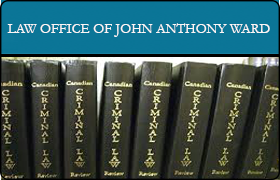Twin Lakes Misdemeanor Lawyer, Wisconsin
Sponsored Law Firm
-
 x
x

Click For More Info:
-
The Law Office of John Anthony Ward
3636 80th Street, Kenosha, WI 53142» view mapCriminal Defense Kenosha Criminal Lawyer
The investigators and prosecutors will work hard enough against you. Your attorney needs to be on your side throughout negotiations and trial. Contact John A. Ward
800-768-2901
Julia Marie Zielinski
Misdemeanor, Felony, DUI-DWI, Criminal
Status: In Good Standing *Status is reviewed annually. For latest information visit here
FREE CONSULTATION
CONTACTWendy A. Patrickus
Criminal, Traffic, Felony, Misdemeanor
Status: In Good Standing *Status is reviewed annually. For latest information visit here Licensed: 37 Years

 John A. Ward Kenosha, WI
John A. Ward Kenosha, WI AboutJohn A. Ward
AboutJohn A. Ward Practice AreasServices
Practice AreasServices